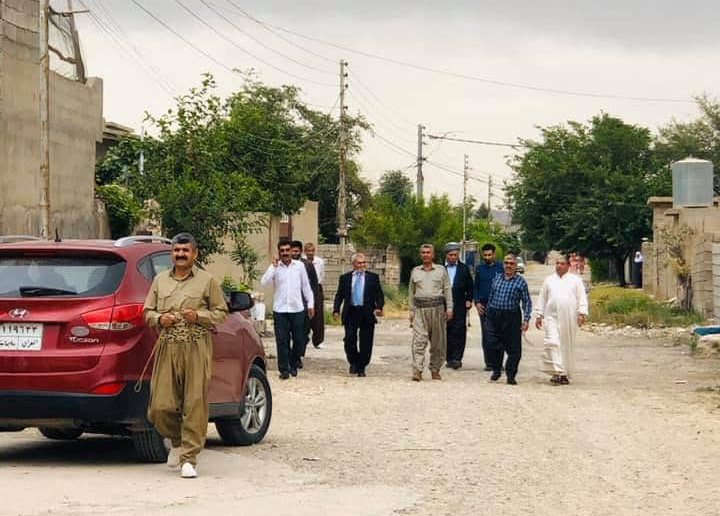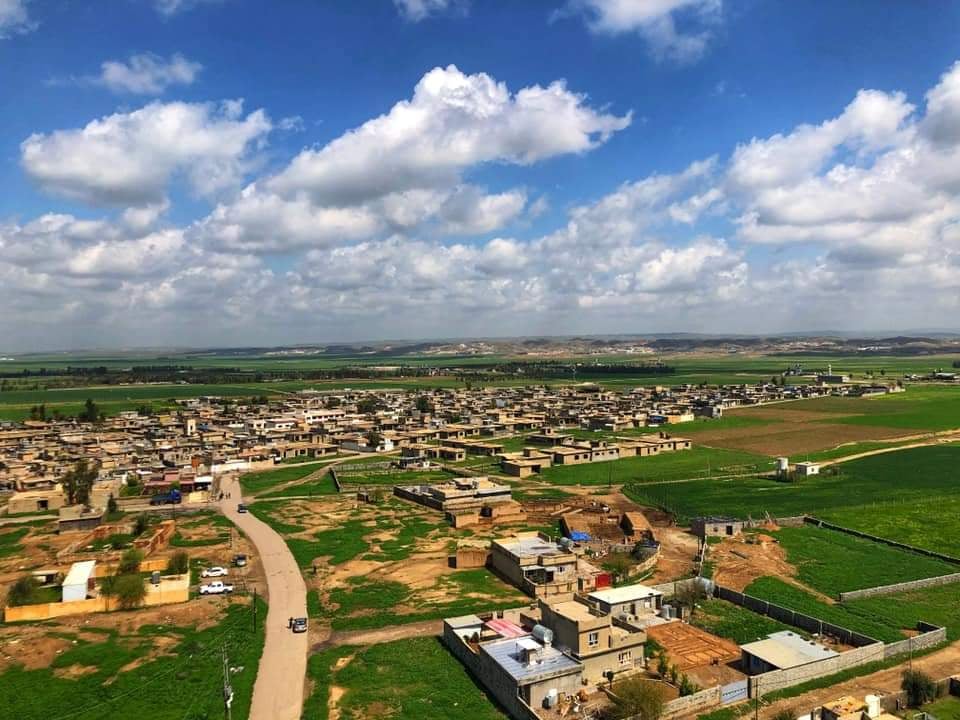Kurdish farmer in Laylan subdistrict say they will not leave their farmlands so that Arabs from elsewhere take over them. They request the governments of Baghdad and Erbil to find a comprehensive resolution for the issue.
There exist ownership disputes about 300 hectares of farmlands between Kurds, Arabs and Turkmens in the Laylan subdistrict south of Kirkuk City.
“This year alone, Arab settlers have come here four times, threatening us in order to leave our farmlands. But we are not going to leave our ancestral lands, especially for people who’ve come from other provinces; those who the Ba’th regime brought here when it was in power,” said 63-year-old Azad Abdulla.
Azad is a resident of Tarjil village in Laylan. He was forced out of the area by the Ba’th regime in 1975, but has returned there after the fall of the regime in 2003.
Black Tapu [proprietorship documents] from the Ottoman times, determine our ancestors as owners
Azad explained to KirkukNow that for years such threats come with the backing of the government and security forces. “Even though the Black Tapu [proprietorship documents] from the Ottoman times, determine our ancestors as owners, and now strangers want to take them from us,” added Azad.
During Saddam regime’s Arabization process, Kurdish families were kicked out of many areas by the regime and their lands were confiscated, then leased to Arabs from central and southern Iraq. But after 2003, most of those Kurds returned to their lands.
Nadir As’ad, a farmer from the Tarkashkana in Laylan, told KirkukNow: “Arab settlers keep coming to our areas; sometimes they even threaten to kills us if we don’t leave our lands. They have contract [documents], but we have ownership documents.”
“If we allow them to plough our lands, then we’ll lose them forever,” added Nadir.

Kirkuk, 2020 – a group of villagers from Laylan subdistrict
Tensions and conflicts over the agricultural lands located within the Laylan, Daquq and other areas in Kirkuk keep emerging between groups of different ethnicity.
Ismael Fathulla, another farmer from Laylan, blames Kurdish leaders for failing to protect them and not attempting to solve the issue. “But they are keen on fighting for a ministerial position in Baghdad,” he concluded.
Jamal Shukur, a member of Iraqi Parliament for the Kirkuk Province constituency, characterises sending Arab citizens to farmlands in Laylan as “unlawful and unconstitutional”.
Shukur told KirkukNow that resolving disputes over ownership of agricultural lands depends on the decisions taken by the Committee for the Implementation of Article 140 of the Constitution, and that several committees have been formed to deal with the issue with the participation of representatives of the different components of Kirkuk, but the issue remains hanging.
the government is reluctance to solve the problem under various pretexts
He added: "We have sent many recommendations about the issue to the government, but the government is reluctance to solve the problem under various pretexts."
Shukur called for the issue to be among the points of the talks that the KRG delegations is having with Federal Iraqi government, and that practical steps should be taken to resolve the issue. "The Iraqi prime minister should hold Kirkuk’s current administration accountable, because it has taken measures that are not within its authority."
Solving the issue of the dispute over the ownership of agricultural lands falls within the framework of Article 140 of the Iraqi constitution, which was meant to determine whether Kirkuk and other areas should fall under the administration of the Federal Iraqi government or the Kurdistan Regional Government, according to mechanisms that include “normalization and census” and to “determine the will of the resident” with “a referendum in Kirkuk and other disputed territories.”





